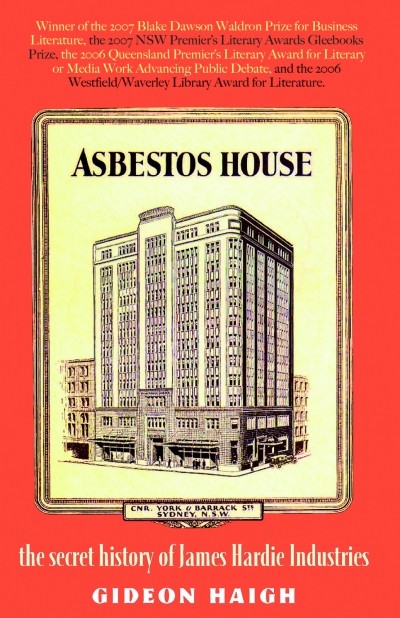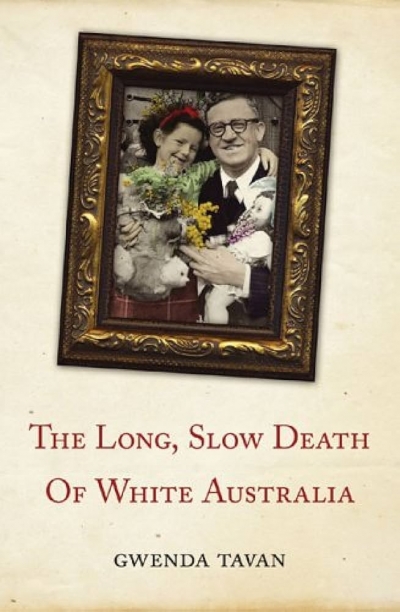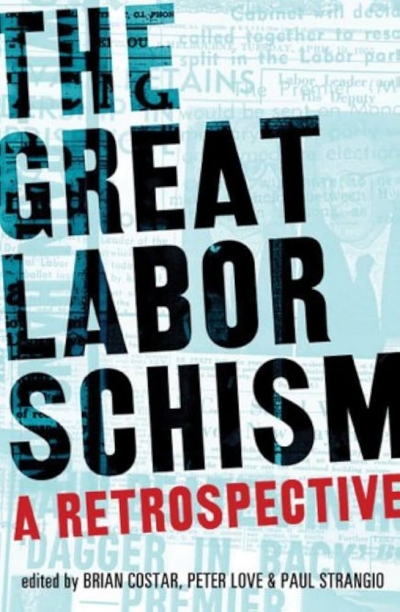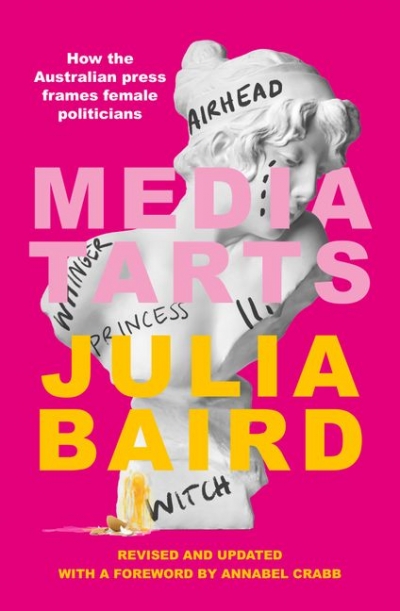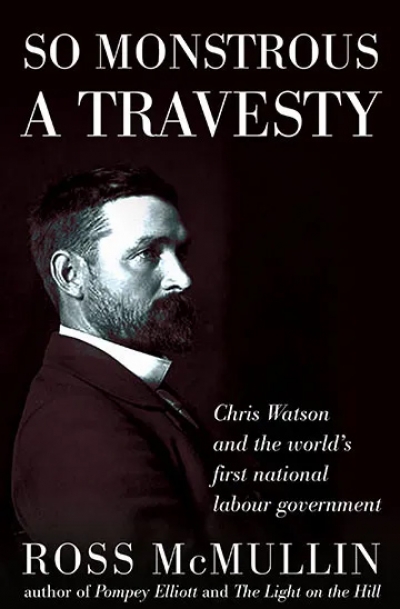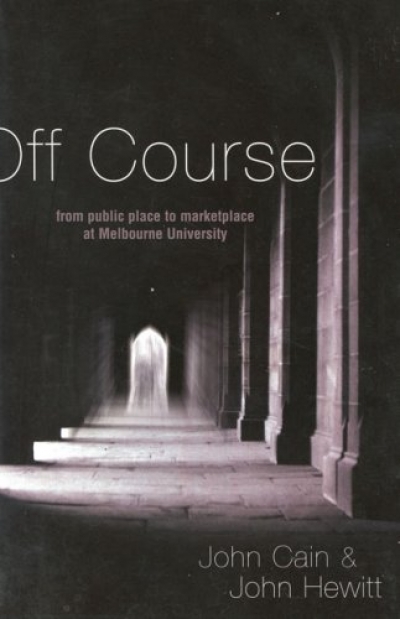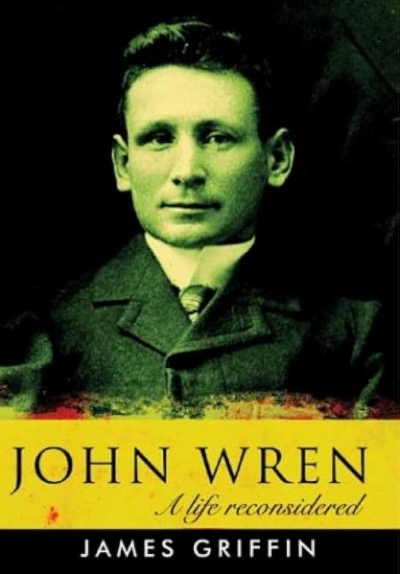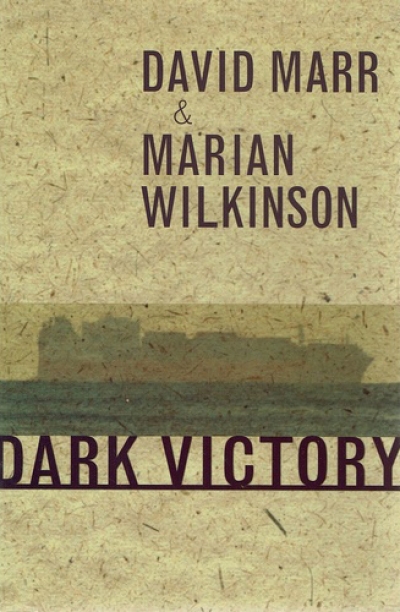Scribe
Asbestos House: The secret history of James Hardie Industries by Gideon Haigh
by Peter McLennan •
The Great Labor Schism: A retrospective edited by Brian Costar, Peter Love and Paul Strangio
by Chris McConville •
The Third Try by Alison Broinowski and James Wilkinson & Australian and US Military Cooperation by Christopher Hubbard
by Daniel Flitton •
Media Tarts by Julia Baird & Chika by Kerry Chikarovski and Luis M. Garcia
by Rachel Buchanan •
So Monstrous a Travesty: Chris Watson and the world's first national labour government by Ross McMullin
by Frank Bongiorno •
Off Course: From public place to marketplace at Melbourne University by John Cain and John Hewitt
by Morag Fraser •
Orwell's Australia: From cold war to culture wars by Dennis Glover
by Troy Bramston •
Dark Victory by David Marr and Marian Wilkinson & Don’t Tell the Prime Minister by Patrick Weller
by Morag Fraser •

